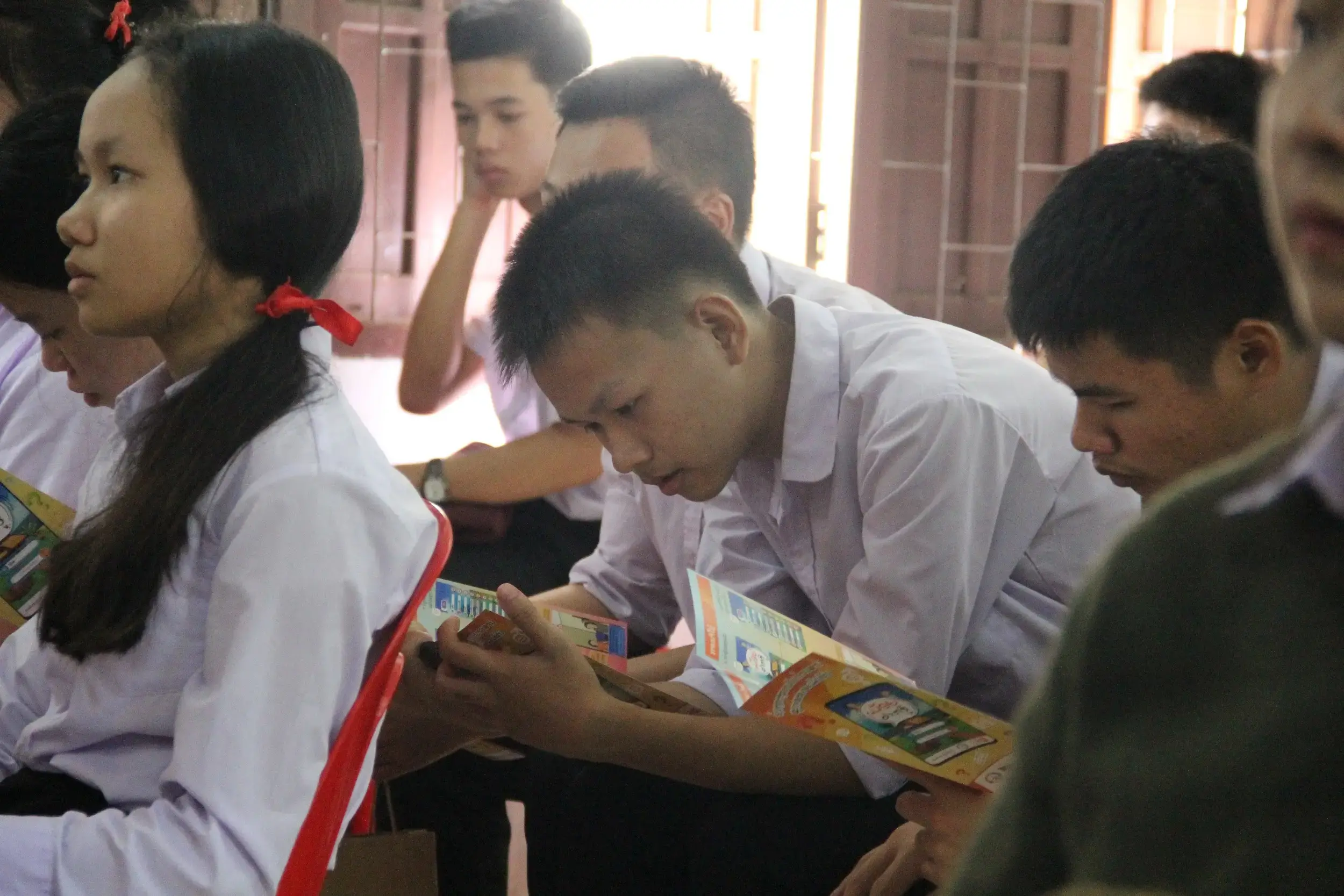Vientiane, Lao PDR, 7 December 2015 - The health needs of women and adolescents are too often neglected in humanitarian response to natural disasters and conflicts around the world, even though whether women and girls live or die in a crisis often depends on access to basic sexual and reproductive health services like midwives and HIV prevention, says the 2015 State of World Population Report, launched by the United Nations Population Fund (UNFPA) on 3 December 2015 at the global level.
The State of World Population 2015, "Shelter from the Storm", shows that of the 100 million people in need of humanitarian assistance around the world today, about 26 million are women and adolescent girls in their childbearing years.
Sexual and reproductive health services critical to the health and survival of women and adolescents are scarcest at the time they are needed most, The State of World Population says. Three fifths of maternal deaths today occur in countries that are considered fragile because of conflict or disaster. Pregnancy and childbirth kill 507 women every day in these settings.
"Without the usual protection of family and community, women and adolescents are more vulnerable to sexual violence, unwanted pregnancy and sexually transmitted infections. Critical basic services like maternal health and family planning are necessary to save women's lives and enable adolescents to make a safe and healthy transition to adulthood, with their rights and dignity intact," said Dr. Mohtashami, Representative, UNFPA Lao PDR.Lao PDR has experiences both peaceful society and less severe natural disasters in the past decades. However, as the threats from the climate change have been increased throughout the world. It is significant for the country to be well prepared.
"Lao PDR has made a significant progress in the past few years to prepare and response to natural disasters," Dr. Chanthaboury, Vice Minister, Ministry of Planning and Investment, says. "Protecting the health and rights of Lao people including women and adolescents is not only critical to respond to natural disasters but also for accelerating recovery."
According to the report, there is still huge financial limitation to respond to humanitarian situations around the world, jeopardizing the health and lives of millions of people. UNFPA in 2015 received less than half the funding it required to meet the essential sexual and reproductive health needs of women and adolescents globally.
Because the demand for humanitarian assistance outpaces supply, a new approach is needed, with a new emphasis on prevention, preparedness and building resilience of nations, communities, institutions and individuals. A pathway to resilience is equitable, inclusive development that protects rights, including reproductive rights, the report concludes.
"The business-as-usual approach to humanitarian assistance will leave too many behind at a time when needs are so great," Dr. Osotimehin, UNFPA Executive Director, says. "We need to do a much better job of helping the most vulnerable, especially adolescent girls. But we must also do a much better job of investing in a more stable world, capable of withstanding the storms ahead."
To highlight the priority of adolescent and youth development in Lao PDR, the event also included the hand-over of prizes to essay winners on the title of meeting the needs of young people on sexual and reproductive services and information. The essay competition was launched in Savannakhet and Luangnamtha during the World Population Day in July 2015 and aims to enhance writing and analytical skills of young people. The three winners are talented Lao youth from Savanakhet and Lunagnamtha.

Ms. Vanly Lorkuangming, Communication Associate, UNFPA Lao PDR
Email: lorkuangming@unfpa.org
Telephone: +856 21 315547, 353048 - 9
Mobile Phone: +856 20 99903355
Website: http://countryoffice.unfpa.org/lao/



